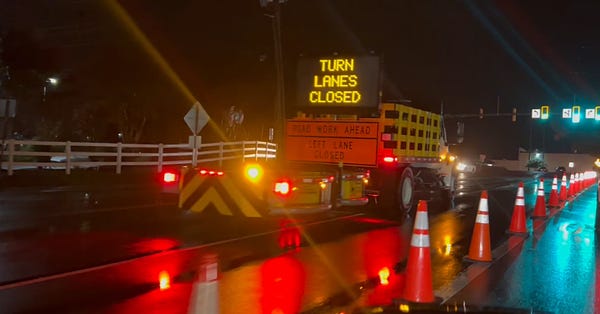At what point are experts held accountable?
Professional planners & engineers sit through ethics sessions to maintain their credentials, while residents are hurt & killed by the approved infrastructure.
Ethics sessions for professional planners and engineers are a joke. It's like gathering to watch an episode of Dukes of Hazzard and then listen to a panel discussion analyzing Boss Hogg's decision tree.
“Was it ethical for Boss Hogg to have the sheriff cuff & stuff the Duke boys based on a lie?” I’m telling you, white collar ethics panels, webinars, and workshops are on that level. “Is it ethical for a developer who’s new in town to skip the legal process for a car dealership if he promises to build the city manager a new home?”
I’ve written about the AICP and PE codes of ethics before, but was whipped up into a frenzy this morning by a local news story. Check out my reply to their tweet. It’s the exact same spot I’ve been using as an example of questionable ethics for years.


A year ago, the local press published this story about the exact same stretch of road. There was a burst of crashes involving pedestrians, so the police department set up a few speed traps and then reminded vulnerable people of their second-class status. From the NBC post:
Police continue encouraging drivers to buckle up and drive safely as well as encourage pedestrians to wear reflective clothing and cross the roadway in well-lit areas.
Journalists are always looking for a scoop, but they keep missing a giant story:
Certified planners are requiring licensed engineers to build deadly streets.
Families across the country are devastated by injuries and deaths on public streets that are preventable. Preventable. Planners and engineers know how to design safer infrastructure, especially for vulnerable users on foot. How is that not a case study in ethics?
To maintain their PE and AICP status, imagine ethics sessions that discussed and debated questions like:
How is an agency serving the public interest if its land use policy forces low-income residents to risk life and limb walking along arterials?
Should a consultant be reprimanded for designing the road to encourage reckless behavior? Why or why not?
Should proven safety measures be dismissed because neighbors voted against them?
And because everyone gets something out of tabletop exercises:
This side of the room will defend expanding a signalized intersection, knowing it causes more crashes, injuries, and death than a roundabout.
That side of the room will make the case that a roundabout must be installed, on ethical grounds.
Seriously, ethics is no joke. The infrastructure industry keeps treating it like cartoony heroes and villains. Maybe now’s a good time for you to suggest your local reporter call “civil” engineers and “community” planners in for questioning.




